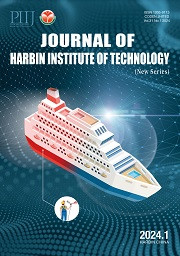|
| Abstract: |
| In order to study the residual stress distribution law of welded joints of arch ribs of large-span steel pipe concrete arch bridges, numerical simulation of temperature, stress and strain fields based on ABAQUS for welded joints of arch-ribbed steel tubes using 7-, 8- and 9-layer welds is carried out and its accuracy is demonstrated. The steel pipe welding temperature changes, residual stress distribution, different processes residual stress changes in the law, the prediction of post-weld residual stress distribution and deformation are studied in this paper. The results show that the temperature field values and test results are more consistent with the accuracy of numerical simulation of welding, the welding process is mainly in the form of heat transfer; Residual high stresses are predominantly distributed in the Fusion zone (FZ) and Heat-affected zone (HAZ), with residual stress levels tending to decrease from the center of the weld along the axial path, the maximum stress appears in the FZ and HAZ junction; The number of welding layers has an effect on the residual stress distribution, the number of welding layers increases the residual stress tends to decrease, while the FZ and HAZ high stress area range shrinks; Increasing the number of plies will increase the amount of residual distortion. |
| Key words: steel pipe and concrete arch bridge arch rib multi-pass welding residual stress numerical simulation |
| DOI:10.11916/j.issn.1005-9113.23038 |
| Clc Number:TG404; TU391 |
| Fund: |
|
| Descriptions in Chinese: |
| 为了研究大跨径钢管混凝土拱桥拱肋的焊接接头的残余应力分布规律,本文以平南三桥为背景,采用ABAQUS分别对外径1400mm,厚度26mm的7层、8层、9层焊缝拱肋钢管焊接接头环焊缝进行温度场、应力场和变形数值模拟,并论证数值模拟的准确性。研究了钢管焊接温度变化、残余应力分布、不同工艺残余应力变化规律,预测焊后残余应力分布和变形。结果表明:温度场数值与试验结果比较吻合,论证焊接数值模拟准确性,焊接过程主要以热传导形式传热;高拉应力区分布于FZ和HAZ,由焊缝中心沿着轴向路径残余应力值呈现减小趋势,且最大应力出现在FZ与HAZ交界;焊接层数对残余应力分布有着影响,焊接层数增加残余应力出现减小趋势,同时FZ及HAZ高应力区域范围缩小;焊层数的增加会增加残余变形量。 |





